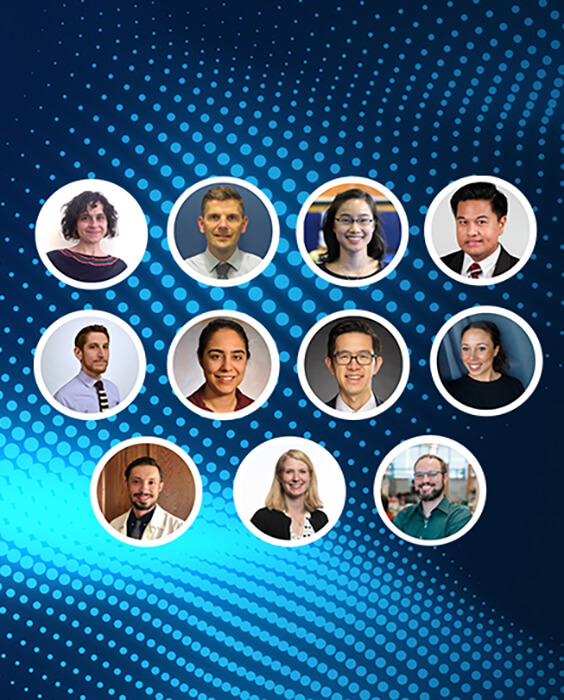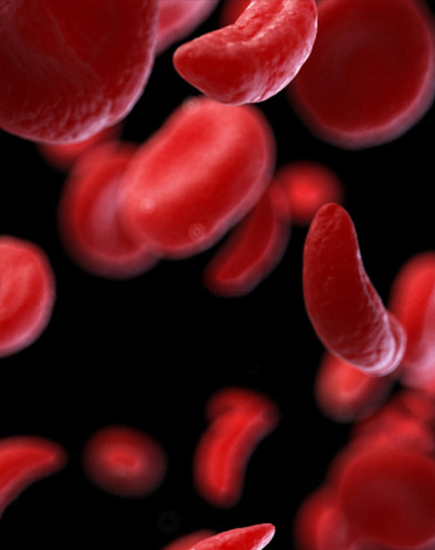The COVID-19 Fund to Retain Clinical Scientists competition is now open and accepting letters of intent. See the Request for Applications document for information on submitting a letter of intent and full proposal.
The deadline to submit letters of intent is June 22, 2021 at 3 p.m. ET, and full proposals will be due July 20, 2021 at 3 p.m. ET. Institutions must submit a letter of intent to be eligible to submit a full proposal.
Deadline extensions for the submission of a letter of intent will be considered on a case-by-case basis; please send inquiries to ddcf@aibs.org.
Please visit the FRCS Frequently Asked Questions for additional information.
Purpose
The purpose of the Fund to Retain Clinical Scientists, which first launched as an experimental program in 2015, is to provide supplemental, flexible funds to early-career physician scientists working on clinical research projects and facing extraprofessional demands of caregiving. Ten U.S. medical schools were identified in an open, peer-reviewed competition to administer these funds to eligible faculty and to participate in an external evaluation of this intervention.
Click here for descriptions of each participating institution.
Building on the promising outcomes of the Doris Duke Charitable Foundation Fund to Retain Clinical Scientists program, the Doris Duke Charitable Foundation, the American Heart Association, the Burroughs Wellcome Fund, Rita Allen Foundation and Walder Foundation have come together to offer a one-time COVID-19 Fund to Retain Clinical Scientists grant opportunity for U.S. medical schools that are evolving to strengthen policies, practices and processes to support the research productivity and retention of early-career faculty with family caregiving responsibilities.
Individuals are not eligible to apply directly to DDCF for these institutional awards.
History & Rationale
Over 40% of young physicians with fulltime faculty appointments at academic medical schools leave academics within 10 years.[1] The reason behind this attrition is complex and multi-dimensional, but one factor is that early faculty members, particularly women, face substantial family caregiving responsibilities such as childcare and eldercare. Several innovative programs have been developed at the institutional level to help researchers maintain productivity in the face of transitory, significant obstacles. Often referred to as “extra hands” awards, these financial supplements provide technical assistance to young faculty members.[2] Evaluation of one of these programs has shown return on investment in the form of retention of scientists in research, promotion within academic ranks and attainment of new grants.[3] Early findings of the national Fund to Retain Clinical Scientists indicate that by providing supplemental research funding to physician scientists at the time of a caregiving crisis, these grants: 1) advance clinical research in an inclusive but not gender-neutral way, [4] 2) enable recipients to repurpose their time so their research can continue, [5] and 3) validate rather than reinforce stigma around caregiving in clinical research.[6]
A recent survey of women faculty in science conducted by the National Academies of Sciences, Engineering and Medicine, found that the COVID-19 pandemic has exacerbated the time pressure to balance family caregiving and research responsibilities leading to a point where institutional response is needed to rely on sustainable solutions rather than individual coping strategies. Funders have come together to offer a COVID-19 Fund to Retain Clinical Scientists funding opportunity to support and spotlight changes at the institutional level that can support scientists with family caregiving needs, focusing on early-career physician scientists working at U.S. medical schools. This is a workforce ripe to benefit from institutional action and proximate to the public health concerns that are front and center during the pandemic.
To apply for this funding opportunity, see the request for applications here.
[1] Association of American Medical Colleges. Available at: https://www.aamc.org/download/67968/data/aibvol8no4.pdf
[2] Munson, Weisz, and Masur. 2014. Juggling on the Ladder: Institutional Awards Help Faculty Overcome Early-Mid Career Obstacles. American Society of Cell Biology Newsletter 37:9
[3] Jagsi et al., 2007. A targeted intervention for the career development of women in academic medicine. Arch Intern Med 167:343
[4] Jagsi R, et al. 2018. An Innovative Program to Support Gender Equity and Success in Academic Medicine: Early Experiences From the Doris Duke Charitable Foundation's Fund to Retain Clinical Scientists. Ann Intern Med. 17;169(2):128-130.
[5] Jones RD, et al. 2019. The Most Valuable Resource Is Time: Insights From a Novel National Program to Improve Retention of Physician-Scientists With Caregiving Responsibilities. Acad Med. 94(11):1746-1756.
[6] Jones RD, et al. 2020. From Stigma to Validation: A Qualitative Assessment of a Novel National Program to Improve Retention of Physician-Scientists with Caregiving Responsibilities. J Womens Health (Larchmt). 29(12):1547-1558.


